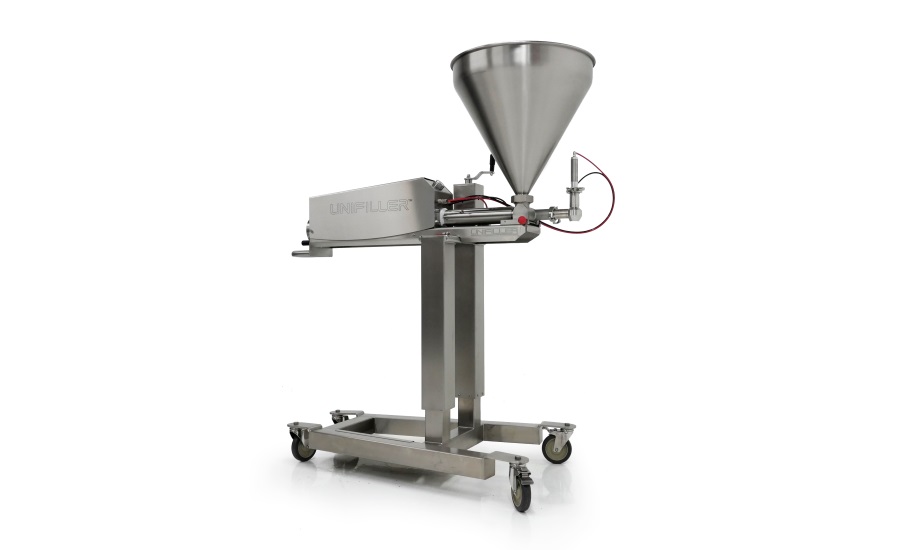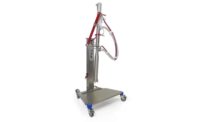Company: Unifiller
Website: www.unifiller.com
Equipment Snapshot: Unifiller Systems recently unveiled its new Pro Series Food Service depositors, designed specifically for the rigorous demands of the food service sector.
The heavy-duty Pro Series includes the Pro1000i FS and Pro 2000i FS depositors, featuring a large conical hopper and precision height adjustment for use with various pumps and conveyor systems. Both models offer a one-turn calibrated deposit speed dial and quick-connect stainless steel fittings.
Capable of a large deposit range up to 93 oz., and able to deposit up to 110 deposits per minute, the series is perfect for clean depositing of sauces, ready meals, sandwich fillings, deli salads, meat fillings and other flow able products. The depositor series includes a patented SV product valve, large openings and passages for safe depositing of larger chunks up to 1.5”.
Constructed with the highest food safety and sanitation standards in mind, the Pro Series includes angled surface covers to eliminate pooling of water and food particles. As with all Unifiller machines, the stainless steel, tool-free design makes maintenance, change-over, and disassembly quick and easy. Full wash-down capabilities and a design philosophy that focuses on the fewest parts to maintain and clean, allow for quick sanitization for maximum uptime.
The series’ versatility lends itself to various configurations through the addition of attachments like spreader nozzles, injection needles, cake heads, diving nozzles and more. Different hopper sizes, heated hoppers, hopper stirrers and agitators let producers maintain product integrity. Mounting and travelling bridges are also available for use over form, fill and seal systems.
The Pro Series depositors are ideal for environments with extreme temperature requirements. According to Martin Riis, Product Manager at Unifiller Systems, “the series features an upgraded pneumatic control systems intended to work in hot and cold environments substantially reducing the wear and tear caused by moisture build-up, caustic cleaning processes and daily wear and tear.”









